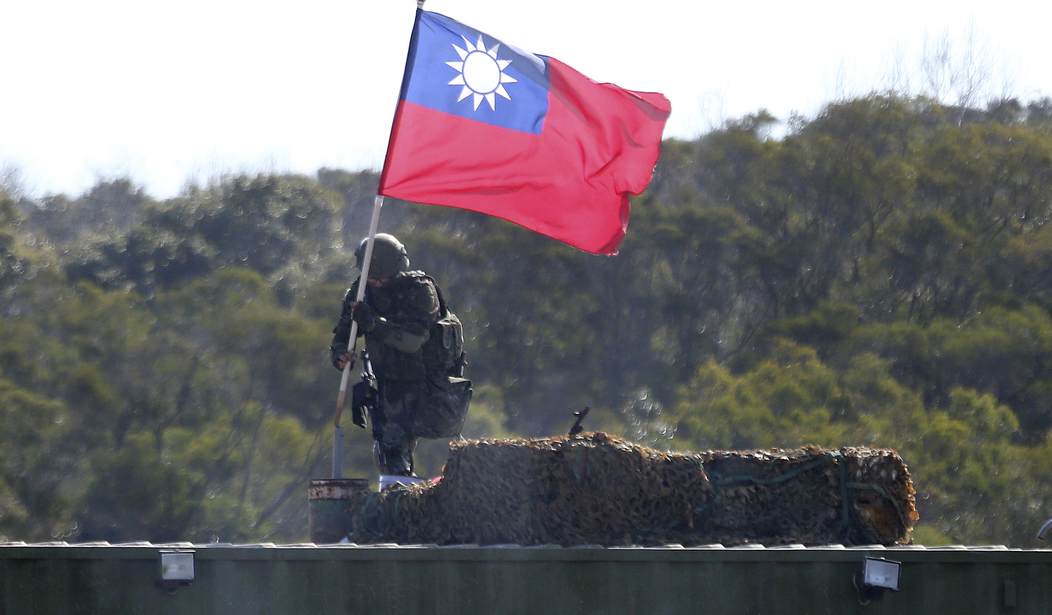This story is brought to you by the direct support of our VIP members. If you're not a member yet, please consider becoming a Townhall VIP member.
TAIPEI, Taiwan — A bipartisan congressional delegation touched down at Taoyuan International Airport in Taipei on Sunday evening and became the first American delegation to visit the Republic of China’s (Taiwanese) capital since new President Lai Ching-te’s May 20 inauguration.
Led by House Foreign Affairs Committee Chairman Michael McCaul (R-TX), the delegation includes Reps. Young Kim — chairwoman of the HFAC Subcommittee on the Indo-Pacific — Joe Wilson (R-SC), Jimmy Panetta (D-CA), Andy Barr (R-KY), and Chrissy Houlahan (D-PA). A few U.S. media outlets, including Townhall.com, were invited to accompany the delegation during its visit to Taiwan amid escalating cross-strait tensions.
Notably, the spokesperson for the CCP’s Ministry of Foreign Affairs warned the United States on Thursday “not to schedule any congressional visit to Taiwan. Otherwise, all consequences arising therefrom must be borne by the US.” Such warnings did not deter McCaul or the rest of the delegation from defying the CCP’s ominous threat.
The lawmakers’ previously unannounced visit to meet with and show U.S. support for Taiwan’s new government comes as the People’s Republic of China (PRC) continues escalating its harassment of the island with People’s Liberation Army (PLA) warships and fighter jets seeking to undermine President Lai’s nascent administration while CCP propagandists accuse him of being a dangerous separatist and a “stubborn worker for Taiwan independence.” Those smears are badges of honor in the free world.
The objectives for McCaul’s delegation include gaining an understanding of President Lai’s priorities and objectives as well as conducting oversight of the American Institute in Taiwan (AIT), America’s de facto embassy there, and recognizing Taiwan as an exemplar of autonomous democracy.
Recommended
The peaceful transfer of power that took place last week — now-former President Tsai Ing-wen was term-limited but participated in the formal hand-off to Lai — is just one sign of the vibrant, liberalized democracy that exists in Taiwan and has given rise to a booming economy bolstered by a rich culture.
Despite being fewer than 150 miles from the Chinese Communist Party-run Chinese mainland where the PRC exerts totalitarian control, wages genocide against the Uyghurs, and oppresses its citizens, the humid air in the Republic of China on Sunday evening is that of a free country. Taiwan — dubbed the “unsinkable aircraft carrier” by General Douglas MacArthur — would very much like to keep it that way.
The CCP and its leader Xi Jinping continue to threaten its island neighbor with “reunification” — read: a forced military seizure of Taiwan resulting in the elimination of its freedoms — which Xi claims is an “inevitability” and for which he regularly conducts military drills in the waters surrounding Taiwan.
On Thursday and Friday, the People’s Liberation Army conducted joint live-fire drills — the largest in recent memory — that saw PLA forces completely surround Taiwan for exercises including “combat-readiness patrols, joint seizure of comprehensive battlefield control, and joint precision strikes on key targets,” according to the PRC’s military. It was a dry run for a blockade and invasion.
The Biden State Department said the U.S. is “deeply concerned” about the drills and “strongly urge[d] Beijing to act with restraint” because “normal, routine, and democratic transition as an excuse for military provocations risks escalation and erodes longstanding norms that for decades have maintained peace and stability along the Taiwan Strait.”
The encircling of Taiwan at the end of last week — which the PRC says was “punishment” for the inauguration of President Lai — was the largest but not the only recent attempted show of force by the PRC’s military. According to Taiwanese defense officials, the PLA has “become more and more provocative” since the end of April leading up to President Lai’s inauguration.
Two weeks before the congressional delegation landed in Taipei, some 15 PLA aircraft entered Taiwan’s Air Defense Identification Zone (ADIZ) and crossed the median line dividing the Taiwan Strait to conduct “joint combat readiness patrols” with CCP warships just a few dozen miles away from the Republic of China’s shores.
According to a spokesperson for the House Foreign Affairs majority, another objective of the delegation’s visit is to demonstrate that no level of intimidation from the Chinese Communist Party will weaken the United States’ commitment to peace in the Taiwan Strait.
To that end, McCaul’s delegation will also assess how the ROC can best defend against the PRC and how previously passed U.S. aid packages can bolster Taiwan’s security. That includes the recently cleared Indo-Pacific Security Supplemental Appropriations Act which allocated $2 billion in Foreign Military Financing (FMF) for Taiwan and the 2022 Taiwan Enhanced Resilience Act which appropriated $2 billion in annual FMF grants from 2023 to 2027.
In addition, the delegation will discuss how a current $19 billion weapons backlog can be remedied to ensure congressionally appropriated assistance for Taiwan is getting where it needs to be in order to have its intended deterrent effect as the CCP shows no sign of easing hostilities against Taiwan.

























Join the conversation as a VIP Member